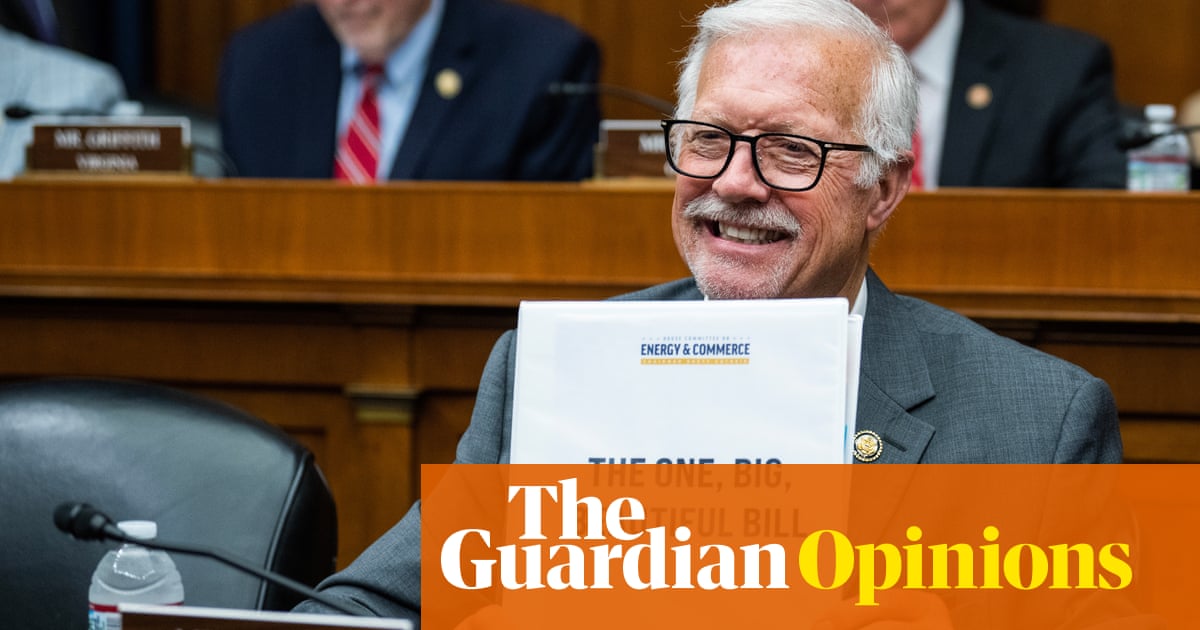What’s big, beautiful and kept a lot of Republicans up late on Sunday night? There might be various responses to that question, but the answer I’m looking for isthe One Big Beautiful Bill Act. Coming in at 1,116 pages, the bill isn’t quite War and Peace but it’s definitely big. Whether the mega-package of tax breaks and spending cuts is beautiful, however, is up for debate.
And there has certainly been a lot of debate. The bill has been in limbo for a while because a few Republicans who consider themselves “fiscally conservative” are happy with the package’s extension of Trump’s 2017 tax cuts and increased spending for the military and immigration enforcement, but don’t think enough social and climate-related programmes have been slashed to pay for it all. In particular, they want deeper cuts to food stamps andMedicaid, which is a government programme providing health care to low-income people. Late on Sunday, however, in an unusual weekend vote, the hardliners relented a little and the House Budget Committeerevived the bill. It still faces some challenges, but it is now closer to becoming law.
If you are in a masochistic mood you can read all 1,116 pages of the bill. But the TLDR is that a more accurate name for the package would be the Screw Poor People and Make the Rich Richer Act. Or the Kick Millions Off Medicaid So a Billionaire Can Buy Another Yacht Act. This isn’t to say that every single element of the package is bad. There is one part, for example, where children under eight are given $1,000 for “Money Accounts for Growth and Investment”, AKA“Maga” savings accounts. In general, though, it’s pretty on-brand for Republicans.
The deceitful name is on-brand too. The right is very cunning when it comes to legislative framing: it loves hiding nasty intentions behind noble-sounding names that are difficult to argue with. Emotive words such as “protect” tend to come up a lot. If a bill has “protect” and “women” in its name, you can be sure it’s not about protecting women, but about bullying transgender people. The Protection of Women and Girls in Sports Act of 2025 (which wasblockedby Democrats in the Senate in March), for example, focused on banning transgender athletes from women’s sports. As the National Education Associationsaid at the time, however, it “does nothing to promote equity in resources, funding, or opportunity, or to tackle the sexual abuses of athletes and subsequent cover-ups that have occurred in women’s sports”.
Another thing Republicans love to do is to pass entirely unnecessary bills with highly emotive names, in order to amplify misleading information. Take, for example, the rightwing lie (repeatedly amplified by Trump) that Democrats want to execute newborn babies. This is obviously nonsense – infanticide is very much illegal in the US – and is a willful misinterpretation of the fact that doctors may sometimes give palliative care to dying babies. This didn’t stop cynical lawmakers from coming up with theBorn-Alive Abortion Survivors Protection Act(a bill that has gone through a number ofiterationsbut was passed by House Republicans earlier this year) requiring doctors to provide care for children born alive during an attempted abortion. Again, there are already laws in place that cover this. The bill was completely unnecessary but it gave Republicans a great opportunity to conflate abortion and infanticide. “Tragically, House Democrats opposed the bill, voted for infanticide, and opted to deny medical care to crying newborns on operating tables struggling to live,”Republican House Speaker Mike Johnsonsaid after most Democrats voted against the legislation.
Republicans have always understood how to use language to manipulate people far better than the Democrats. You may have forgotten the name Newt Gingrich but the former Republican House Speaker has been anintegral partin the rise of Trumpism and the current culture wars. Back in 1990 his political action committee distributed a pamphlet called “Language: A Key Mechanism of Control” that instructed Republican candidates to learn to “speak like Newt”. Gingrich was very keen on exploiting emotive language andsaying outlandish thingsthat would make headlines and get the media inadvertently amplifying a preferred narrative. The Republican party may now be full of toadies – but you can’t deny they’re all fluent in Newt.
Arwa Mahdawi is a Guardian columnist
